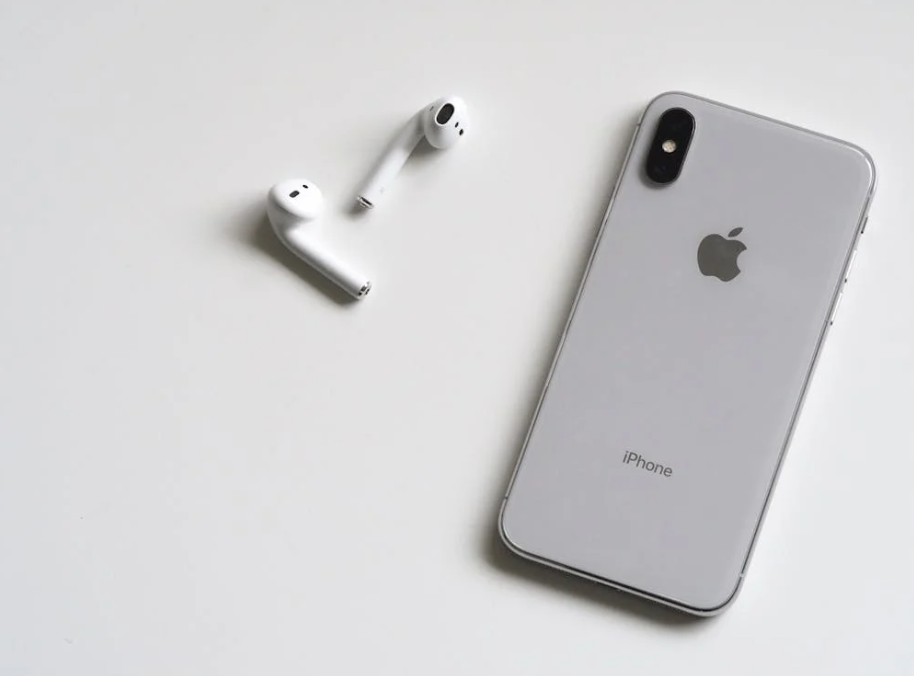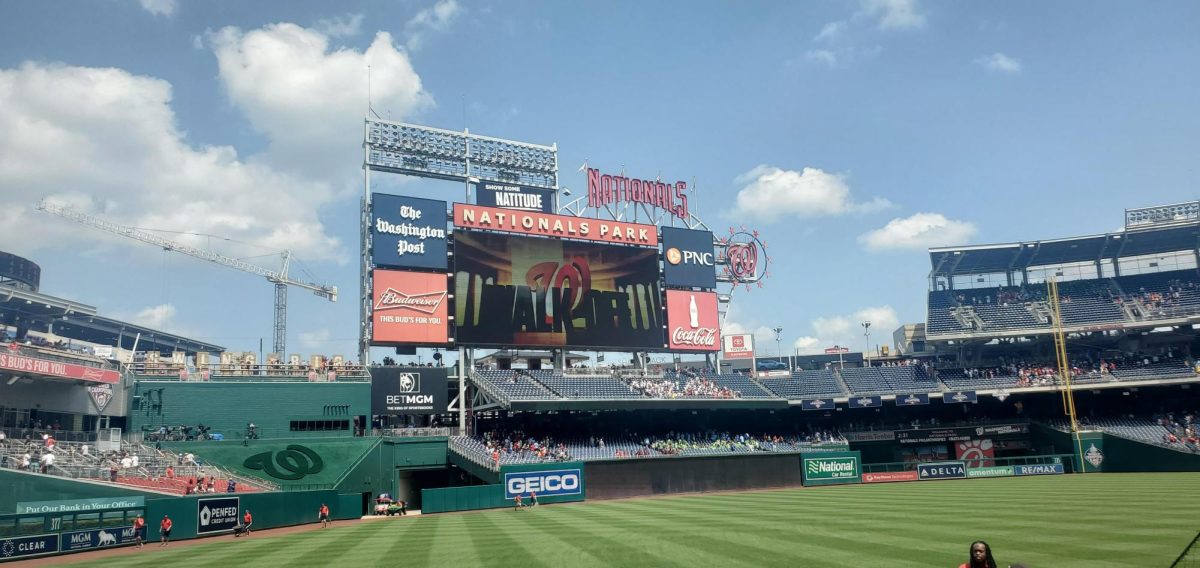August 19th, 2024 was a day that will go down in Westfield History and forever plague my memory. At first, the day started fine. Beautiful, even. The sun was shining, the birds were singing (author’s note: I wear hearing aids) and the grass was greener than Mr Dibari’s glowing green orbs. All was going well, until my first-period teacher, Ms. Hahne, brought out a black and yellow pouch and hung it on her door. As we all looked at her in confusion, she walked to the front of the class and said these dreadful words: “Your phones go in there.”
I’m sorry, what? My jaw dropped so fast and far that it hit the linoleum floor. Surely I must have misheard her. Everyone knows highschoolers are permitted to use their phones throughout the class with AirPods to accompany them.
“That pouch is for your phones– I’m going to assign each of you a number, and that will be your pouch for the rest of the year.”
I felt my stomach turn. My hands got cold and sweaty, and my thoughts started to race. All of a sudden I felt light-headed, and then before I knew it, I fainted.
Okay, that’s not actually what happened. But it might as well have been.
On July 9th, 2024, VA Governor Glenn Youngkin issued an executive order establishing cell-phone-free education in Virginia’s K-12 public schools. All Virginia elementary, middle, and high schools have been given until January 1st, 2025 to implement and enforce this new policy. Out of all the school districts affected, FCPS has been one of the first to adhere to this order.
This sudden change prompted a bunch of different reactions from a bunch of different people. Some think this was a necessary change that should have been made much earlier, while others detest the policy and find it unconstitutional.
During August, our very own Westfield High School had a senior class meeting in the auditorium, as we do each year. During the meeting, when this policy was brought up, all the students started booing almost unanimously. I’m sure you can infer from this example alone the feelings most students have about this new rule.
“I think it’s hella dumb.” stated Karen Barrientos-Ordonez, 12, during an interview. “It’s never that deep.”
“I’m happy I’m a senior and don’t have to deal with this school anymore.” remarked Maggie, 12
“Considering we had two fires last year, not having access to our phones in the event of an emergency would go very poorly with the community, especially parents.” Lizzie Laurelli, 12, reflected.
“People think technology detracts from our learning, but what they don’t understand is that times have changed. We live in a digital age, and everything is online.” Reet Bhangu, 12, asserted.
“It’s ridiculous we’re not allowed to use our phones during third period, because that’s literally supposed to be free time.” Alina Sikander, 12, sighed, rolling her eyes.
“It doesn’t stop people from skipping– in fact, it makes them more likely to skip because they just won’t come to class so they don’t have to hand their phones over.” stated an anonymous freshman.
“I think oftentimes it can be kind of contradictory to take away phones because a lot of parents use phones and ipads as pacifiers these days for young children, so having it all the time for comfort and having it taken away so suddenly in middle and highschool can cause whiplash.” mentioned Valentino Rodriguez-Fuentes, 12.
No matter how many students I interviewed, I got the same answer from all of them– that this policy is unnecessary, unhelpful, and that it needs to go.
The teachers had different opinions, however.
“Personally I think it’s something that’s been needed for a while– even though last year there was an “away for the day” policy, it wasn’t something that was being enforced, but now I feel like things have been more clear and they seem to be helping with students focusing and whatnot.” Stated Cory Fox, English Teacher. “I think the cell phone policy correlates to students being less distracted and more open to learning. I don’t have to redirect my students as much, so I have more time to help students individually and give better instruction. During emergency situations I feel like the cellphones being away is not a hazard because the cell phones are still in the room and the students can access them if there really is a situation, and we also have landlines and computers in each classroom so we have ways to communicate with the outside world.”
“This policy is something we’ve needed for a long time– cell phones in my class have been a major distraction and correlate with lower participation rates and worse grades. I’m glad something is finally being done about it, to put it frankly.” Shared an Anonymous History Teacher during an interview.
Despite this, the students refuse to back down from their stance, presenting counter-argument after counter-argument.
“Refuting Ms Fox’s point– just because there’s a landline in the classroom doesn’t mean there’s no need for phones. In the event of an emergency, is everyone going to form a line to contact their parents? People might start fighting about who’s going to use the landline, and additionally, landlines are usually loud and are way more detectable by an intruder than a silent cell phone vibrating.” countered “Refuting ms fox’s point– just because there’s a landline in the classroom doesn’t mean there’s no need for phones. In the event of an emergency, is everyone going to form a line to contact their parents? People might start fighting about who’s going to use the landline, and additionally, landlines are usually loud and are way more detectable by an intruder than a silent cell phone vibrating.” Countered Valentino Rodriguez-Fuentes, 12, once again.
“If we use a landline, what if our parents don’t recognize the number?” pointed out Siddarth Peddireddy, 12
“It doesn’t stop people from skipping– in fact, it makes them more likely to skip because they just won’t come to class so they don’t have to hand their phones over!” exclaimed Niranjana Ezhilarasan, 12.
“What about students with disabilities? Students with ADHD or other issues often use their phones because they have approved accommodations, are we just going to deny them that now?” inquired Sriya Bapatla, 12 “they say to use the computers, but a lot of assistive softwares are blocked there.”
As a student myself, I can’t help but agree.
Of course, there may be some benefits to this new policy, but there are also many downsides that a lot of the adults around us just aren’t understanding. Aside from all the points people have made above– that not having cell phones is a hazard in the event of the emergency, that cell phones being taken away makes issues for people with accommodations, or that taking away cell phones won’t increase attendance rates, there’s still one more point left to be made.
Highschool is supposed to prepare us for college, isn’t it? I think that the people who made this policy need to remember that soon, there’s not going to be anyone to hold our hands or tell us what to do or what not do, so if anything, isn’t this policy going to be worse for us in the long run? Highschool is all a learning process– you learn study skills, you learn what you need to succeed, you learn what works for you and what doesn’t. At the end of the day, the people that want to try will, and the ones that don’t simply won’t.





